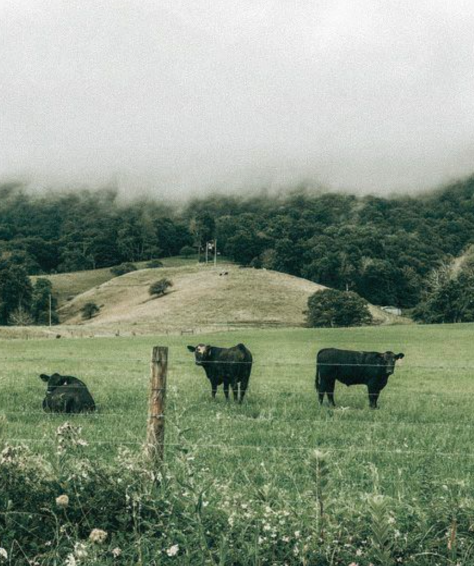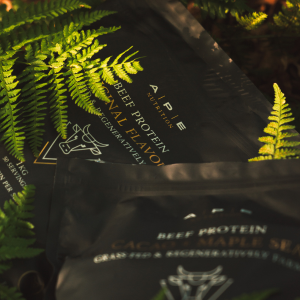We first heard about C40 or ’15 minute’ cities on Instagram around a year ago. However, when we tried to look into it, there wasn’t really any legitimate information online. All the posts we saw covering the topic were from so called ‘conspiracy theorists’ and appeared to be hear say. Fast forward to today and C40 cities are most definitely a thing, with 96 cities from around the world having already signed-up.
So what are they?
The concept is being coined 15 minute cities because one of the key principles is that neighbourhoods will provide residents with all their essentials (shopping, work, healthcare, leisure, etc) within a 15 minute walk from home. The officials behind the project are selling this as a great way to reduce green house gas emissions because there will be less of a need for driving, as well as a move back towards how things used to be.
As described on their own website, ‘C40 is a global network of mayors of the world’s leading cities that are united in action to confront the climate crisis.’ Sounds great, right? Jump onto the website’s about page and there’s more, similarly fluffy statements that all sound good but don’t give any substance to what they’re actually going to do.
With food being our area of expertise, we headed over to the Food Systems page to see if we could find out some details and still no specifies in terms of plans. However, there is mention that ‘Through the C40 Good Cities Accelerator, 16 cities from around the world have signed on to deliver sustainable food policies and achieve a ‘Planetary Health Diet’ for all by 2030.’
One Google search of Planetary Health Diet later and alarm bells are ringing massively.
In their words... “The planetary health diet is a global reference diet for adults that is symbolically represented by half a plate of fruits and vegetables.
The other half consists of primarily whole grains, plant proteins (beans, lentils, pulses, nuts), unsaturated plant oils, modest amounts of meat and dairy, and some added sugars and starchy vegetables.
The diet is quite flexible and allows for adaptation to dietary needs, personal preferences and cultural traditions. Vegetarian and vegan diets are two healthy options within the planetary health diet but are personal choices.”
There’s so much wrong with the above it’s hard to know where to start. Not only is it incredibly controlling to impose a way of eating on people, but the diet described will very likely result in decreased human and planetary health.
In an attempt to breakdown how it will do this in a clear way, I’ll separate my response out into categories and try to explain the flaws without getting too far into the weeds.
The same could be said for all regenerative farms…. I was speaking to Jack from @the_clarence_herd last week. He’s four years into his farming journey running a regenerative cattle farm on Exmoor. Since starting, they’ve added 1% of organic matter to their top soil each year and it’s now at 12% total. On average, intensive arable operations have 4% organic matter and internationally it’s 1%. The more organic matter in the soil, the more carbon it can sequester from the atmosphere and the healthier it is, meaning the food you grow on it will be more nutrient dense.
If the focus is primarily reducing atmospheric carbon, regenerative cattle farming is one of the best ways to do this. Which is ironic as the mainstream media narrative is that cattle are the devil when it comes to the climate crisis. Not only does this tackle the carbon problem, but it also creates one of the most healthy foods available to us; beef.
Nutrition
Vegetarian and especially vegan diets are associated with a number of nutrient deficiencies, including; the bioavailable forms of Vitamin A (Retinol) and K (K2) as well as vitamin B12 and the minerals iron, iodine and zinc. That’s not to say you can’t get these nutrients being plant based, it’s just it often takes intelligent food planning as well as supplementation. This raises the question, is veganism a diet of privilege? As you need to have a solid nutritional education as well as money to spend on supplements to be able to follow this approach healthfully. However that’s a complicated discussion for another time.
On another nutritional note, one of the things that always frustrates me when I see nutrition guidelines is the fact that they never make the distinction that the food needs to be organic and from regenerative farming practises. I’m going to take an educated guess that the people behind the ‘Planetary Health Diet’ don’t care if the half plate of fruit and veg they’re suggesting is from mono cropped agriculture that’s been covered with pesticides, herbicides, fungicides or whatever other artificial chemical. These substances are terrible for human health and planetary health. For example, the herbicide glyphosate (the chief ingredient in Round Up) has been shown extensively to destroy the gut lining and cause cancer all whilst degrading soil health and killing off wildlife that come into contact with it.
We are not designed to eat this way! A review of the diets of 229 hunter-gatherer societies showed that they ate on average 68% animal foods and 32% plant foods. We evolved eating like this for 99.9% of human existence, so it’s how we thrive. Whole grains, plant-sourced protein, unsaturated plant oils and added sugars have no place in our diet nutritionally. That’s not saying you can’t enjoy a piece of sourdough or a sugary desert from time to time for the taste, but they definitely shouldn’t be making up such a huge proportion of a proposed Food System (not that one should exist at all).
As touched on under the carbon section, there’s other environmental factors that need to be taken into consideration when thinking about how to eat for the health of the planet. Regenerative farming promotes wildlife biodiversity, improves water holding capacity, supports local family run farms, works in harmony with the environment, improves soil health and doesn’t use artificial chemicals that poison us, wildlife and waterways. Industrial farming whether it be factory farming animals or mono-cropping fruits and vegetables does literally the opposite. It depletes wildlife biodiversity, reduces water holding capacity resulting in flooding and so on.
In conclusion
For us, a planetary health diet should be focused on feeding people using regenerative farming methods that re-build the environment, have the highest standards for animal welfare and produce nutritionally superior foods. Your dietary choice within this is up to you. It’s really that simple. If we know this and every regenerative farmer knows it too, then surely the people pushing forward the global food agenda must have stumbled across it in their research.
Besides Food Systems, C40 Cities are planning on tackling; Adaption & Water, Air Quality, Energy & Buildings, Transportation, Ports & Shipping, Urban Planning & Waste Management. We're not experts in any of these areas so I’m not going to go into them, but if their approach to Food Systems is anything to go by, the goal will be profit, power and control dressed up as improving the planet.
We appreciate the idea of a dystopian future where things like how you eat are controlled can be a scary thought. However, it's good to understand what's being planned so we can oppose it now before it's too late. We need to band together and support real food systems on a local level. Seek out regenerative farms in your area and don't just start shopping from them but see if you can partner them with your children's school, your sports club or where you work.
Here's to More Life,
Josh & Izzi






